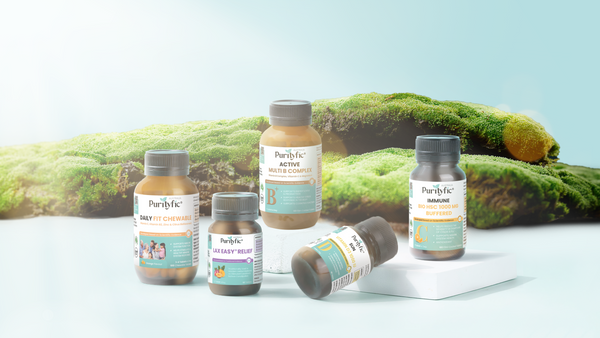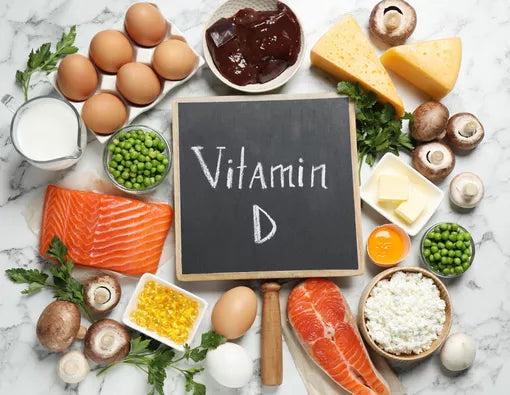
10 Foods That Help With Bloating

We all have days when we feel very uncomfortable in the stomach. Bloating is a symptom that can happen to anyone, even to a certain extent is a natural thing. Then, what are the factors that make us bloated? and What foods help with bloating?
According to Meredith Rofheart, RD, a registered dietitian with the private practice Culina Health, bloating is linked to stress, fluid retention, dysfunctional gastric motility, digestive disorders like Irritable Bowel Syndrome (IBS) and Inflammatory Bowel Disease (IBD), intestinal parasites or excessive bacterial growth, hormonal imbalances, and some medications.
Food Also Affects Bloating
Of course, the things we eat can also have an impact on bloating. According to Erin Judge, RD, registered dietitian and founder of Gutivate, certain foods are more fermentable, which means they create gas. Bloating can result from increased gas production caused by these foods.
Certain foods, including foods with FODMAP (a type of carbohydrate) such as garlic and onion, are more likely to cause bloating in people who are sensitive to them.
The way we eat can contribute to the sensation of bloating as well. "Consuming fiber and fat in excess can delay the emptying of the abdomen, creating a full stomach and a feeling of bloating," Scarlata said. Using a straw might cause excess air to enter the digestive tract, causing the intestines to stretch. Eating quickly can also shorten your chewing time, which can impede digestion.
However, when bloating never goes away, continues to worsen or with pain and changes in bowel habits, further examination of the health care provider is necessary.
To cope with flatulence, you can increase water intake and include ginger in the diet. Know that there is no single food that can cure bloating. Since the causes of bloating are often multifactorial, do not rely on cucumbers alone to cure your GI symptoms.
10 Foods That Help With Bloating
1. Foods That Help With Bloating: Ginger
Ginger can stimulate motility in the GI tract and, by expansion, relieve constipation and associated abdominal distension, according to a May 2018 study in a Scientific Report. Randomized control trials found that ginger capsules significantly reduced abdominal distension in people who had recently had a C-section rather than with a placebo.
Other benefits: The plant is an established antiemetic, meaning it can help prevent nausea and vomiting, according to the University of Michigan Health. Try grating fresh ginger into a cup of tea, suck ginger capsules or chew crystallized ginger to relieve the stomach.
2. Foods That Help With Bloating: Sweets
Peppermint contains an organic compound called l-menthol that has been shown to reduce gastric and colon spasms, relax the gastrointestinal tract muscles and potentially soothe abdominal pain and bloating, according to the Memorial Sloan Kettering Cancer Center (MSKCC).
"I often recommend enteric-coated peppermint oil tablets for my patients with sensitive intestines," Scarlata said. Choose enteric-coated goods, which have a specific coating that allows peppermint to enter the small intestine, as this will help limit the possibility of peppermint side effects that increase stomach acid reflux.
If you are not prone to acid reflux, try sipping a cup of peppermint tea when your stomach feels too full.
3. Foods That Help With Bloating: Water
This may sound counterintuitive, but drinking enough water is essential to prevent bloating. According to Judge, proper water can help prevent bloating by supporting the digestive tract and keeping things flowing. One of the big reasons for bloating is poor movement, either from the food itself or from the gases resulting during the process.
Be sure to remove your fluids throughout the day. Hydration can help prevent bloating, and downing large amounts of water while also being able to make the problem worse. It also helps to limit carbonated sips such as seltzer or club soda, which can introduce more gas into the digestive tract and contribute to bloating.
4. Pineapple
Pineapple contains an enzyme called bromelain which helps the digestion of proteins. This compound has been in use for hundreds of years to treat indigestion and inflammation in Central and South America, according to Mount Sinai. It is also effective in the treatment of wounds and burns, according to the MSKCC.
On the other hand according to the National Center for Complementary and Integrative Health, When talking about the effects of bromelain on indigestion, research is still lacking. While bromelain supplements can interact with some medications, there's nothing wrong with snacking on a refreshing bowl of pineapple when you feel bloated.
5. Foods That Help With Bloating: Papaya
Just like pineapple, papaya has an enzyme called papain that helps break down proteins during digestion. According to the Cleveland Clinic, most studies have studied papain for wound healing purposes, so researchers still don't know if the fruit increases bloating.
Fortunately, papaya is a low-fiber source of FODMAP which can improve regularity – and potentially reduce bloating as a result.
6. Cucumbers
The next Food That Helps To Deal With Bloating is cucumbers. Enjoying this water-rich vegetable that weighs more than 95 percent of water can help maximize our fluid intake and provide the hydration we need to get back to our baseline when bloated.
7. Kiwi
This tropical fruit is rich in potassium, a key electrolyte that encourages the excretion of sodium from the body, according to the Office of Supplements. Sodium retention causes the body to retain water, which can cause bloating. There is also a compound in kiwi called actinidin that may serve as a digestive aid, although human studies are still lacking, according to a February 2013 study published in Advances in Food & Nutrition Research. But unlike ripe bananas, kiwis are low in FODMAP, which means they are more likely to tolerate it well even among people with IBS.
8. Yogurt
Fermented foods such as yogurt, kimchi, and kefir are packed with beneficial microbes that support digestion. Probiotics are commonly found in some yogurts and have been shown to help improve IBS symptoms as well as diarrhea in some people, according to Harvard Health Publishing.
It is important to note that the tolerance to dairy products is entirely individual and some people may experience bloating due to consuming dairy products. If you're dealing with intolerance to most dairy-based products, yogurt might be for you.
9. Fennel
The next food that helps with bloating is fennel. Essential oils derived from fennel seeds can help reduce IBS symptoms such as flatulence and GI seizures, according to a June 2016 study in the Journal of Gastrointestinal and Liver Diseases.
Be careful because the shape of the fennel you consume can make a difference. "Fennel essential oils have been shown to reduce IBS symptoms, but fennel tea contains fructans, a common IBS trigger," Notes Scarlata. If you know you are sensitive to FODMAP, consider asking your healthcare provider about additional fennel to address bloating.
10. Foods That Help With Bloating: Celery
Just like cucumber, celery is a very hydrating vegetable (95 percent water) that acts as a diuretic and presents intestinal-friendly fiber that can reduce bloating associated with constipation. One cup of chopped celery provides almost 2 grams of fiber, per USDA.




